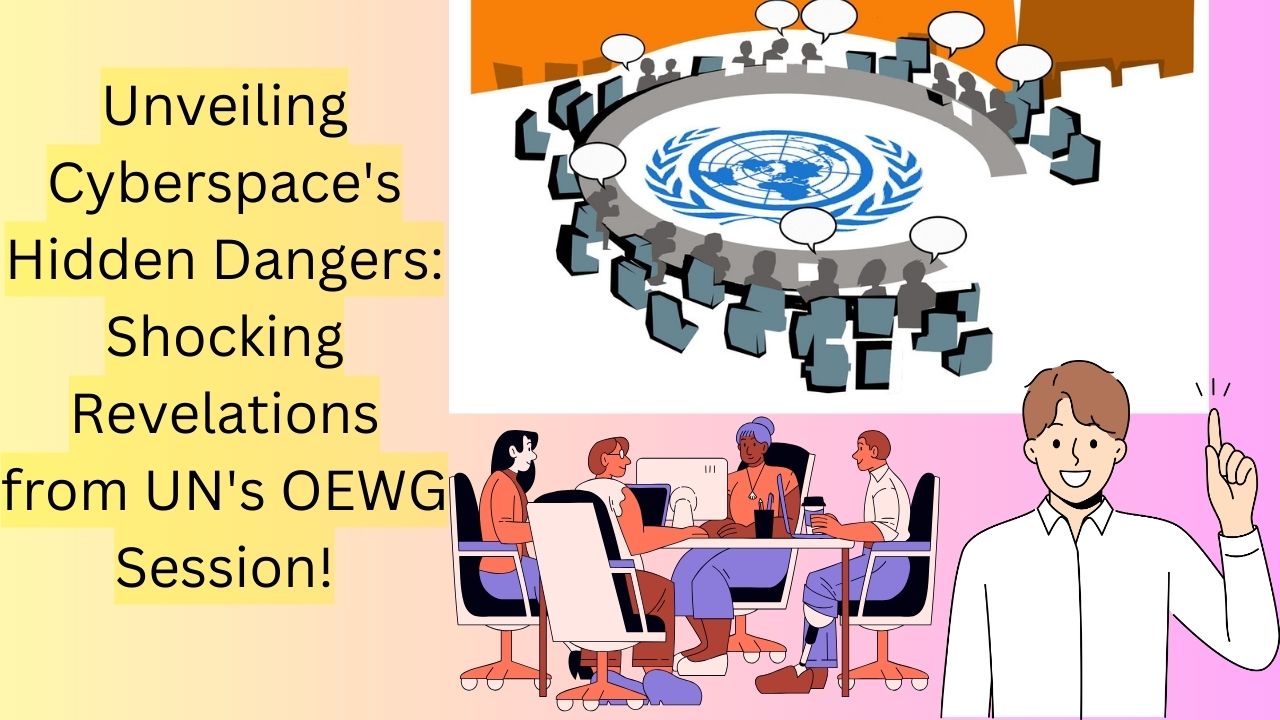
Introduction:
The realm of cyberspace has become increasingly vital to the functioning of modern societies, economies, and governance systems. As reliance on information and communications technologies (ICTs) continues to grow, so too do the associated security challenges. In recognition of these challenges, the United Nations established the Open-Ended Working Group (OEWG) on cybersecurity, tasked with addressing the security of and in the use of ICTs from 2021 to 2025. The seventh substantive session of the OEWG, held in March 2024, served as a platform for stakeholders to engage in crucial discussions surrounding cyber threats, norms, international law, confidence-building measures, capacity building, and institutional dialogue. This article delves into the key highlights and insights gleaned from the session, shedding light on the ongoing efforts to safeguard cyberspace and promote responsible state behavior.
1. Understanding the Cyber Threat Landscape:
The OEWG’s discussions underscored the evolving nature of cyber threats and their far-reaching implications. From state-sponsored cyber attacks targeting critical infrastructure to the proliferation of cybercrime and the emergence of non-state actors with malicious intent, the spectrum of threats is vast and diverse. Participants emphasized the need for enhanced global cooperation to effectively mitigate these threats, recognizing that no single entity can address them in isolation. Collaboration among governments, private sector entities, civil society organizations, and international bodies is paramount to bolstering cybersecurity defenses and resilience.
2. Promoting Norms for Responsible State Behavior:
Norms serve as guiding principles for responsible state behavior in cyberspace, shaping interactions and mitigating the risk of conflict. During the seventh session, discussions revolved around the identification and promotion of internationally accepted norms aimed at enhancing cybersecurity and stability. Key areas of focus included sovereignty, non-intervention, the protection of critical infrastructure, and the responsible use of cyber capabilities. By fostering consensus and adherence to established norms, stakeholders seek to create a more predictable and secure cyberspace environment conducive to global cooperation and trust-building.
3. Upholding International Law in Cyberspace:
The session reaffirmed the importance of international law as the foundation of cyberspace governance. Participants underscored the applicability of existing legal frameworks, including the United Nations Charter, international humanitarian law, and the law of state responsibility, to cyber activities. Moreover, there were calls for clarifying the application of these legal principles to cyberspace and exploring avenues for the development of additional legal instruments where gaps exist. Upholding international law is essential for promoting stability, deterring malicious behavior, and holding perpetrators of cyber attacks accountable.
4. Enhancing Confidence-Building Measures:
Building trust and confidence among states is essential for fostering cooperation and reducing the risk of conflict in cyberspace. The session highlighted the significance of confidence-building measures (CBMs) in enhancing transparency, communication, and mutual understanding among stakeholders. Effective CBMs encompass a range of activities, including information exchange, incident reporting mechanisms, joint cybersecurity exercises, and the promotion of cyber hygiene practices. By implementing CBMs, states can demonstrate their commitment to peaceful coexistence in cyberspace and pave the way for greater collaboration in addressing shared challenges.
5. Bridging the Capacity Gap:
The digital divide persists, with disparities in cybersecurity capabilities and resources posing significant challenges, particularly for developing countries and less developed regions. Recognizing the importance of bridging this capacity gap, the OEWG emphasized the need for targeted capacity building initiatives and technical assistance programs. Such efforts aim to enhance cybersecurity awareness, build technical expertise, and strengthen institutional capabilities at the national and regional levels. By empowering states to effectively address cyber threats, capacity building contributes to a more resilient and inclusive cyberspace ecosystem.
6. Fostering Institutional Dialogue and Collaboration:
Sustained institutional dialogue is fundamental to fostering cooperation, sharing expertise, and coordinating efforts in addressing cybersecurity challenges. The OEWG reiterated the importance of regular engagement among governments, international organizations, civil society, academia, and the private sector. Through platforms such as the OEWG, stakeholders can exchange views, identify common priorities, and develop joint initiatives to advance cybersecurity objectives. Institutional dialogue serves as a catalyst for building trust, promoting information sharing, and facilitating collective action in safeguarding cyberspace.
Conclusion:
The seventh substantive session of the OEWG represents a critical milestone in the global effort to address cybersecurity challenges and promote responsible state behavior in cyberspace. By engaging in constructive dialogue and collaborative action, stakeholders reaffirmed their commitment to enhancing the security of and in the use of ICTs. Moving forward, sustained momentum and collective engagement will be essential in translating discussions into tangible outcomes and safeguarding cyberspace for the benefit of all. As cyberspace continues to evolve, the OEWG remains a vital forum for shaping international norms, fostering cooperation, and addressing emerging threats in the digital age.






